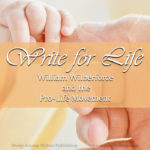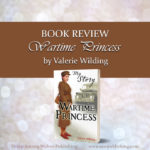Dear Reader: What About Fiction?
 Dear Reader,
Dear Reader,
What about fiction?
At some point in your teen years, this question is likely to surface. When you were at the picture book stage, it wasn’t even on the page. (Forgive that pun, and the unintentional rhyme as well!) Even when you were in elementary chapter books, it probably didn’t come up much. But now that you’re becoming more responsible for your personal reading choices with every passing day, you’re starting to think about books in ways you never thought about them before.
And sooner or later, you’ll come up against the question, What about fiction? Is it good? Is it bad? Is it something I should read?
Is Fiction A Lie?
We all know fiction isn’t true. Does that make fiction a lie?
It’s a fair question. I’ve heard commentators, coming from this premise, argue that the parables of Jesus such as the Prodigal Son and the Good Samaritan took place literally and physically, rather than being stories created by Christ to illustrate lessons. If a fiction is a lie, then obviously we have some concerns about Jesus going around illustrating His teachings with lies!
While I see room to treat this perspective with respect, I think it is missing a deeper understanding of the nature of truth.
Lies vs. Fiction
There is a fundamental difference between a story told with the intent of deceiving people and a story told with the candid understanding that it is not factual.
“Lying is taking a story and trying to pass it off as truth. Fiction is an attempt at using story to reach Truth.” – Sarah Allen
I absolutely love that way of putting it! Fiction is more than “not a lie.” It’s actually a powerful tool for exploring truth!
Fiction as the Gospel in Shoe Leather
“Putting the gospel in shoe leather” happens to be a phrase that’s popular in my church right now. It captures the powerful dynamic impact of not just learning about God’s path but also seeing it lived out practically before one’s eyes.
And fiction has incredible power to do just that!
The longing for positive role models is a natural part of growing up. Sadly, positive role models don’t always exist in the real world exactly when and where we need them. That’s where fiction comes in as an amazing axillary to the “live” people that form your support group. Godly stories give you a picture of godly living. They let you peep in the windows of other people’s journeys to observe their choices, learn from their mistakes, and grow with them towards the standard of Christ.
Fiction and the Question You’d Never Ask
Flowing out of this idea of the gospel in shoe leather comes a related topic: if you’re like the vast majority of teen readers, then there are some questions you’d like answers to, but just can’t picture yourself ever asking!
Navigating conflict, navigating relationships, navigating the things that frighten you, or embarrass you, or bother you—it’s all part of that horrible, wonderful, life-changing process of growing from a girl to a woman.
I owe a lot to the women in my life who were willing to answer some of those questions without waiting for me to feel comfortable asking them. I owe just as much to fiction authors for doing exactly the same thing. One doesn’t replace the other, but together real mentors and fictitious role-models are waiting to come beside you and walk with you through one of life’s most rapidly-changing stages.
Fiction, Imagination, and Empathy
Beyond the direct benefits of fiction as fiction, there is also value to fiction as a tool for developing the creative and imaginative sides of the brain. There is a close link between imagination (using your mind to create a picture of something that you aren’t physically experiencing) and empathy (the ability to comprehend what it would be like to experience something from another person’s point of view.)
In fact, this connection is so close, that it is probably fair to say that empathy without imagination is impossible.
By cultivating the imagination, fiction makes our empathetic instinct faster and stronger. By allowing us inside the experience of imaginary characters, fiction trains us to think about the experience of the real-life people we meet every day.
So What About Fiction?
At the end of the day, the choice to read, or not to read, fiction is something each one of us will need to make for ourselves. I personally have seen great benefits to having worthwhile fiction in my life. I believe those benefits would come through for most other Christian readers as well.
Fiction is unquestionably a tool God has used to shape and nurture many souls.
But at its heart, this question, like all others, is one where God’s leading is of paramount importance. Let Him walk beside you in your journey to good and great books. He is the ultimate Guide!
What are your personal convictions about fiction? Why have you chosen to read, or not to read, it? And what impact has that choice had on your spiritual journey? I’d love to hear your story in the comments section below!
For more from the Dear Reader’s series, see our previous post:
You might also enjoy:

One of the striking things about growing up is that the author begins addressing the preface to you. And the words they write, for better or worse, are going to shape the girl you become. The Dear Reader series makes this rocky road a little easier.

Do you believe abortion should be illegal—but don’t actually believe it ever will be? That exactly where I was a year ago. It’s not where I am today.

WWII changed life for everyone in 1940s Britain—from Blitz-shaken Londoners to the two young Princesses hidden in Windsor Castle. In Wartime Princess Valerie Wilding gives us Margaret Rose’s first-person story.


